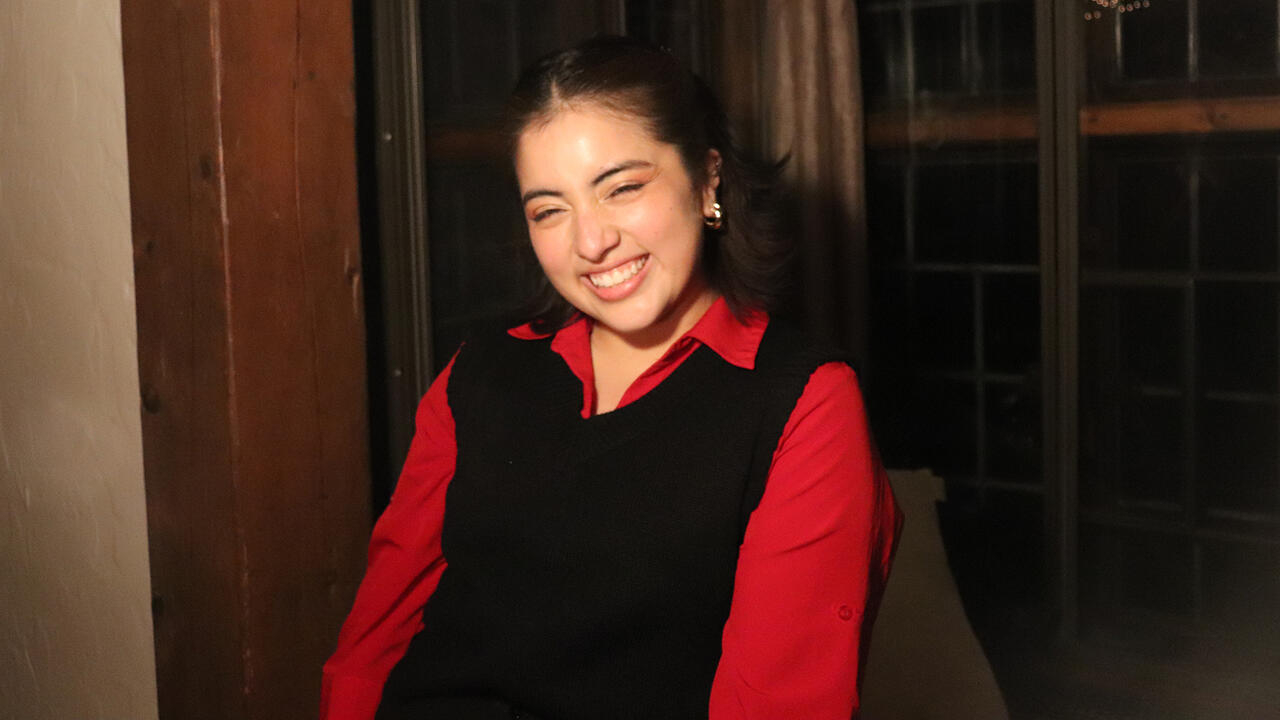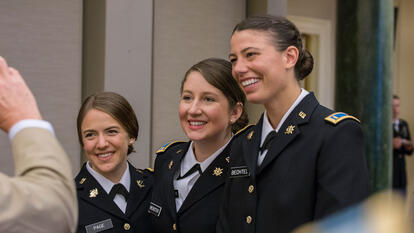
Senior Snapshot, Lizette Ortega ’22: “I want people to find their community in physics”
This spring, physics major Lizette Ortega ’22 completed the first muon telescope ever built at Wellesley. “Muons are a type of subatomic particle,” Ortega explained. “They are invisible, and they are constantly falling from the sky.” Muon telescopes facilitate muography, a process that harnesses muons to probe the innards of dense structures. They have been used to locate secret chambers in the Great Pyramid of Giza and map the insides of volcanoes.
The idea for the project came about in the fall of her senior year, when Ortega spoke with James Battat, associate professor of physics, whose lab she had worked in as a sophomore. “I knew Professor Battat did a bunch of stuff with particles, and also dark matter,” Ortega said. “I approached him and asked, ‘Do you have any projects? I would love to do a thesis with you if you have space for that.’”
Battat offered her the option of working on the telescope, which two previous students had started constructing. He asked Ortega to design and build it in collaboration with Wellesley’s machinist, Larry Knowles, and his team of students, and to ensure that it was detecting what it needed to.
It has been the perfect project for Ortega: Not only has she developed research skills and experience, she is also leaving the physics department a richer space for future students. “I was really excited to take it on, because it had this educational component of creating a resource for the classroom,” Ortega said. “It’s easy to go into the lab when I know my work is going to have at least a slight impact on something beyond myself. Once I leave, this microscope is for Wellesley. In the future, students will have more options to choose from for their own research.”
I’m interested in pursuing a Ph.D. not just because I want to keep learning, but also because I think it’d be really cool to have Latina physicists...they definitely exist, but [there are] not as many as there should be.
Lizette Ortega ’22
For as long as Ortega has been interested in physics, she has been interested in expanding opportunities for others in STEM, and in making the lab and classroom spaces where students from all backgrounds can flourish. “I like to create resources that I wish I had when I was starting the major,” Ortega explained. “It can be really challenging and dense, reading textbooks, and trying to do problem sets.”
She has been able to pursue that goal as a learning assistant in the physics department. “The learning assistant community at Wellesley is incredible,” Ortega said. Learning assistants are peer mentors who have completed a course and help current students succeed in it, and they familiarize themselves with pedagogy. Ortega worked with Rebecca Belisle, assistant professor of physics, to create a video that introduced students to Belisle’s lab, research goals, and community.
Ortega’s desire to help others find their footing in physics comes in part from her personal experience of feeling like she was behind her peers, she said: “Whether that was true or not, it kind of stems from the fact that I don’t see too many people who look like me in STEM.” As a first-generation college student, Ortega wanted to help others in similar positions understand how to access the resources available to them. “Learning to ask for help can be difficult,” she said. “It can be kind of intimidating to ask professors for it, or even your own peers. Sometimes that is really scary. I want people to find their community in physics, and I want people to feel like they have what they need to succeed in the field.”
As the end of her senior year approaches, Ortega is deciding where she will attend graduate school in applied physics this fall. While she is looking forward to continuing her research, she is especially excited about the prospect of teaching undergraduates. “I would like to help other underrepresented students know what it’s like if they want to pursue graduate education,” Ortega said. “I’m interested in pursuing a Ph.D. not just because I want to keep learning, but also because I think it’d be really cool to have Latina physicists. Because they definitely exist, but [there are] not as many as there should be.”



